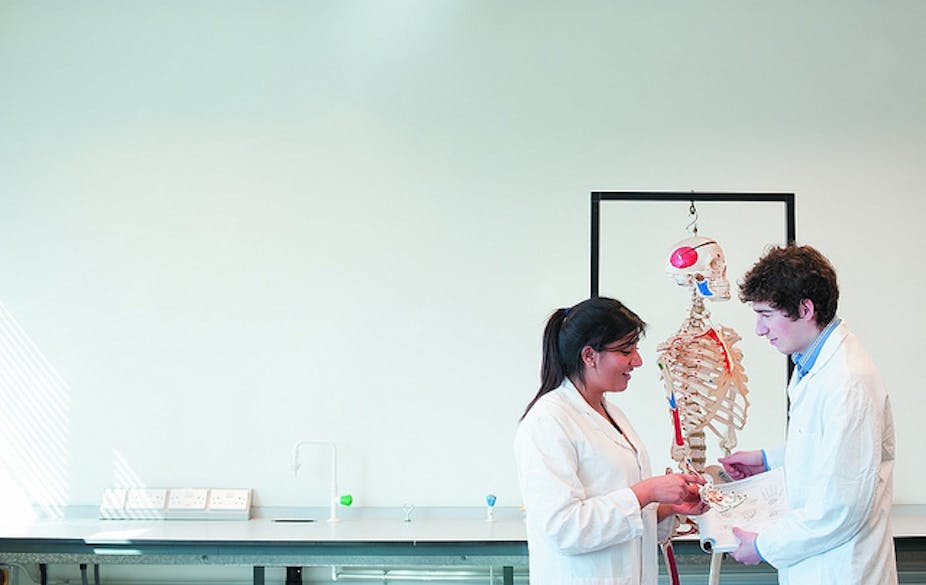Medicine has long been the subject of vigorous debate about the control of social resources. The formation of modern medicine in the mid-19th century was itself the result of a century long fight for legitimacy among many contending groups. At that time, those who won out – the physicians, the surgeons and those who prepared and sold medicines – had no more evidence to support them than those they defeated. They succeeded on the basis of politics, not of evidence.
Since then, western medicine has grown into a key social institution supported by an elaborate scientific infrastructure. But the battle to defend its status, authority and access to wealth continues unabated.
On the one hand, doctors and their professional organisations are engaged in regular disputes with government about the control of fees and budgets, disciplinary practices and accreditation and the extent of their decision-making power. On the other hand, there is a persistent need to defend the boundaries against opposing forms of health care - so-called “complementary” medicine. The latter haven’t died out, despite the undisputed success of medicine. Indeed, estimates show that in most developed countries, including Australia, about half the population regularly use health practices outside the mainstream.
By and large, most people would agree that this is unproblematic and regard it as just part of the rough and tumble of democratic life. What’s more, the current arrangements are regarded as broadly satisfactory. The ability of individuals to choose their own forms of health care is maintained, subject to some limits on what practitioners can do: in the case of complementary therapists, for example, there are rules – admittedly, not always enforced - to protect vulnerable people from unscrupulous, unfounded and dangerous practices and restrictions on the kinds of claims that can be made in advertising and promotional materials.
Western vs complementary medicine
Debates about complementary medicine’s place in society have traditionally been vigorous, but reasoned, with the proponents of medicine calling on the authority of science, and their opponents either appealing to their own evidence, which may be derived from traditional practices, or to philosophical theories, or drawing attention to perceived limitations of western medicine.
But there is a current tendency in Australia that may have crossed the line from reasoned discussion to the inappropriate use of power and authority. A group referring to itself as the “Friends of Science in Medicine”, made up of senior doctors and scientists, has set itself up to “counter the growth” of what it regards as “pseudoscience in medicine”, where “true science” is defined as a set of practices characterised by “an experimental, evidence-based approach”.
The strategy of the group is to apply pressure on government and educational institutions through advertisements, the use of the media and sometimes personal criticisms of individuals to withdraw or prohibit funding for complementary health practices. The organisation models itself on groups in the United States and the United Kingdom that have succeeded in having funding removed from certain “alternative medicine” courses.
Philosophically and ethically, the approach of the group is questionable. As any practitioner knows, the role of empirical evidence in determining a particular clinical decision is, at best, partial and tentative. What we do is pose hypotheses on the basis of laboratory or clinical studies, which we then test through careful observation and assessment of outcomes. Each decision is conditioned by the unique circumstances of the individual involved, including his or her personal medical history, goals, values and preferences. It’s about opening up possibilities, not closing them down.
The role of universities
The key places in our society where science is conducted are the universities. These should therefore be protected as sites where unpopular ideas and theories can be examined. They must foster criticisms of orthodoxy, especially those embedded in the institutions of power and authority. Both western medical practitioners and scientists - like myself – and their interlocutors must be challenged and called to account for their claims and judgements.
What is objectionable about Friends of Science in Medicine is their lack of respect for the fragile balance on which genuine dialogues about knowledge and ethics depend, and their readiness to resort to the use of power and authority to win an intellectual debate. Of course, the medical research and teaching budgets are in the hundreds of millions of dollars, so the power is on their side. Although they may therefore win the battle, the trouble is that control of wealth and the institutions of authority does not generate truth.
Clear thinking
None of this means that there are not problems, either with complementary medicines or with aspects of western medicine. In both cases, vulnerable members of the community need to be protected from exaggerated or misleading claims. In both cases, the evidence – in all its forms – needs to be scrutinised and presented clearly and fairly to patients. And in both cases, the process of communication has to be open, respectful and free of contamination with power or self-interest.
In the spirit and tradition of science, if there is a disagreement, let it be resolved in the crucible of public discourse. We do not need intellectual vigilantes patrolling the corridors of our institutions looking for theories or ideas with which they disagree to drive them out from our midst.
Paul Komesaroff’s comment piece, Medicine and science must oppose intolerance and censorship, is published in today’s Medical Journal of Australia

